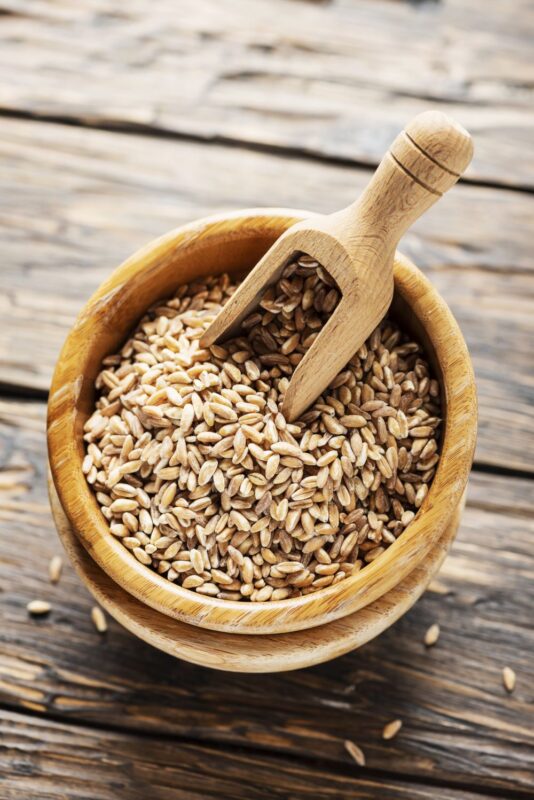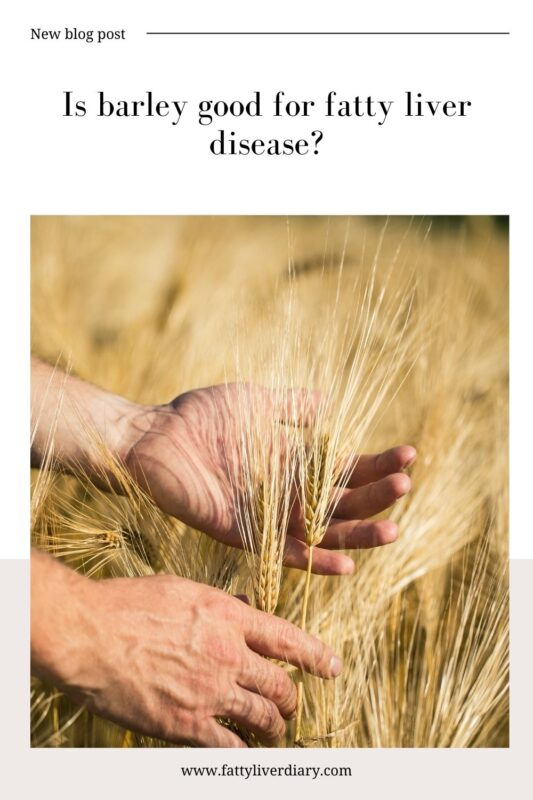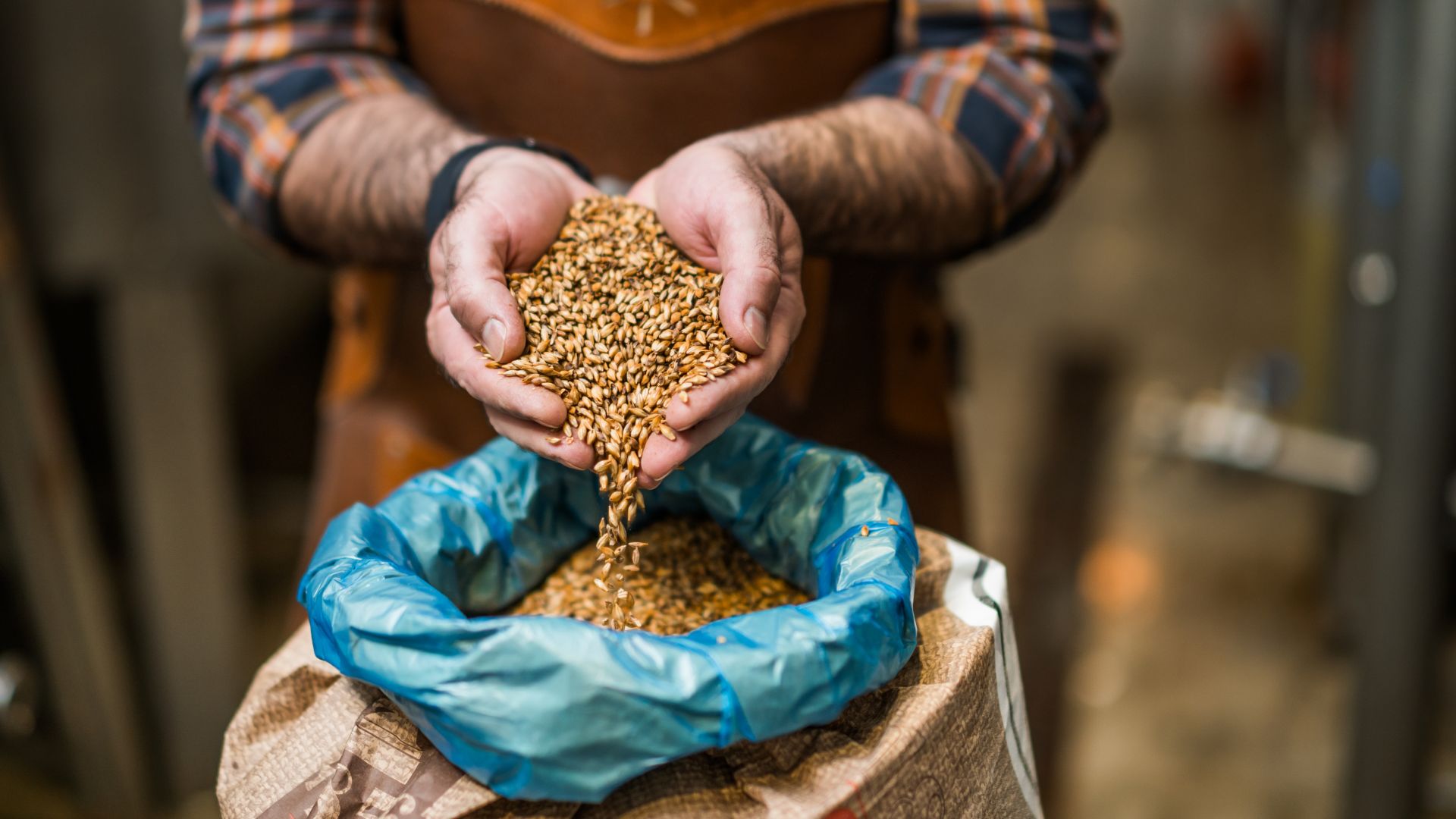Key takeaways
- Barley, rich in nutrients like vitamins, minerals, and phytochemicals, is beneficial for managing fatty liver by reducing cholesterol and promoting liver health.
- Scientific studies support barley’s effectiveness against fatty liver, highlighting hexacosanol and beta-glucan as main benefits.
- For those unable to consume barley, alternatives like bulgur, brown rice, oats, quinoa, and wild rice offer similar liver health benefits.
- Top barley food brands like Be Still Farms Organic Barley and Tsatsaronakis Greek Whole Grain Barley Rusks offer quality options for integrating barley into a fatty liver-friendly diet.
Barley is a rich source of key nutrients, including vitamin C, vitamin A, calcium, phosphorus, magnesium, iron, folate, manganese, selenium, niacin, and potassium, among others.
As a result, according to various studies, we can say that dehulled and hull-less whole grain barley is good for fatty liver in that it reduces cholesterol levels in the body and keeps the liver healthy overall.
Of course, it matters how you consume barley. Don’t think that if you drink barley-made beer, that is also safe for the liver. Alcohol is a big NO.
Can You Eat Barley with Fatty Liver?
Yes, you can eat barley in moderation if you were diagnosed with a fatty liver disease. It is a whole grain that contains minerals and vitamins that are good for optimal liver function.
It’s not just the regular nutrients in barley that have health benefits, but also the main phytochemicals (bioactive compounds with health-promoting effects) in barley – phenolic acids, flavonoids, lignans, tocols, phytosterols, and folate.

Unlike the not so good instant noodles which are filled with chemicals, preservatives and offer refined, quickly absorbed carbs, barley is a better choice.
Barley is considered by some a superfood that’s packed with nutrients, minerals, enzymes, and according to this study, the younger the barley sprout, the greater the nutritional superiority.
The nutrient-dense grain has an abundance of amino acids and fatty acids-cystine, alanine, and aspartic acid, and is a rich source of minerals-copper, sodium, and zinc. In plain English, lots of the good stuff that our body needs to function properly.
Experts agree that barley’s nutrient content makes it a great option that promotes optimal health, and by extension, an ideal food option for someone suffering from fatty liver.
Eating barley with fatty liver is encouraged because of its bioactive compounds that provide both nutritional value and protective function, and studies support this.
Barley comes in a variety of forms including, hull, hulless, flour, flakes, grits, and raw sprouts. Differences in benefits may vary.
Why is Barley Good For Fatty Liver?
According to a 2017 study conducted by researchers from Korea University and published in the journal Nutrition Research, hexacosanol, a naturally occurring hypocholesterolemic agent found in barley sprouts can stop the accumulation of cholesterol via a straightforward mechanism.
The researchers specifically believed that hexacosanol may decrease cellular and plasma cholesterol levels in the process.

A 2016 study published in the journal Nutrients found that barley sprouts are good for alcohol-induced fatty liver because of their hypolipidemic property.
Specifically, the high saponarin content barley sprouts contain both anti-inflammatory and antioxidant benefits.
The raw barley sprouts work by significantly blocking the inflammatory response induced by alcohol which would otherwise help to contribute to the development or worsening of fatty liver.
Therefore, we can say that the same benefits appley to MASLD/NAFLD also.
A diet rich in barley (or any type of whole grain) is good for the liver liver because the barley fiber plays an active role in creating propionic acid that prevents enzymes from helping the liver to create cholesterol.
The fiber further provides beta-glucan (BG), which, as determined by another expert study, helps to reduce hepatic lipid accumulation in liver cells, fatty acid synthase, and increase the activity of cholesterol conversion to bile acid.
The result is lower levels of bad cholesterol in liver cells.
How Much Barley Food Should You Eat With Fatty Liver?
Even though it’s packed with beneficial nutrients and microelements, barley is still high in carbs, so we should stay away from those and opt for various sugar alternatives instead.
In other words, as with anything related to a fatty liver, moderation is key.
According to WebMD, if trying to lower cholesterol, the typical daily amount required is 1- 3 grams of barley oil extract, 30 grams of barley bran flour, and 0.4 – 6 grams of soluble barley.
It’s also recommended that pregnant women, children, the elderly, and persons with a weakened immune system avoid eating raw or lightly cooked barley sprouts, and persons allergic to gluten should avoid barley altogether.
While barley is a complex carbohydrate with rich dietary fiber content and nutritional value, it’s best to limit total carb intake to 40–50% of total dietary energy/calories.
This should be about two servings (30 grams) per meal. Barley intake with fatty liver should fall within that percentage range to not pose a health risk that could worsen fatty liver. Doesn’t seem a lot, but it’s great for diversifying your diet.
Best Barley Food Brands to Try
(Please note: I get commissions if you make a purchases through the links below, at no extra cost for you.)
Be Still Farms Organic Barley is among the best barley food brands to eat out there and a healthy option that has the nutritional value (mineral and vitamin-packed) needed, plus a great taste.
It’s USDA-certified organic barley flour, so you can trust that you are getting a top-quality product that lacks harmful processed ingredients.
Tsatsaronakis Greek Whole Grain Barley Rusks, aka “the Manna” is another fine barley brand option to eat because it’s authentic and homemade. A better option if you don’t want to do any cooking yourself.
It’s a barley bread that is fiber-rich (12.7%), preservative-free, low in fat (1.74%), and cholesterol-free. “The Manna” is packed with flavor, making it a delicious rusk and perfect for a quick snack.
Plus, it’s part of the Mediterranean diet which is my recommended diet for fatty liver.

Best Alternatives for Barley if You Have Fatty Liver
If you have fatty liver and barley is not an option for consumption, the best alternatives that you can eat are other whole grains containing vitamins and minerals necessary for optimal liver function and health.
Top whole grain choices for a fatty liver include bulgur, brown rice, oats, quinoa, spelt, rye, and wild rice.
These wholegrain alternatives are fiber-rich and help to manage lipid levels, while having slow-absorbing carbs which are better than the processed ones.
Conclusion
Barley can be consumed if you have a fatty liver disease because of its nutritional content and the medicinal benefits it exerts, according to all the studies mentioned throughout this article.
It helps to prevent the liver from making bad cholesterol, increase cholesterol conversion to bile, and decrease cellular and plasma cholesterol levels.

I was diagnosed with a fatty liver back in 2014 and managed to reverse it by mid-2015. Since then, I’ve been studying it, continuously updating my knowledge with the latest scientific findings and practical approaches to give others the help they need to reverse their condition.
My approach to managing fatty liver is holistic, balancing scientifically-backed information with real-life, practical advice based on personal, direct experience.
I am also the admin of the Fatty Liver Support Group on Facebook and the Fatty Liver Subreddit.

